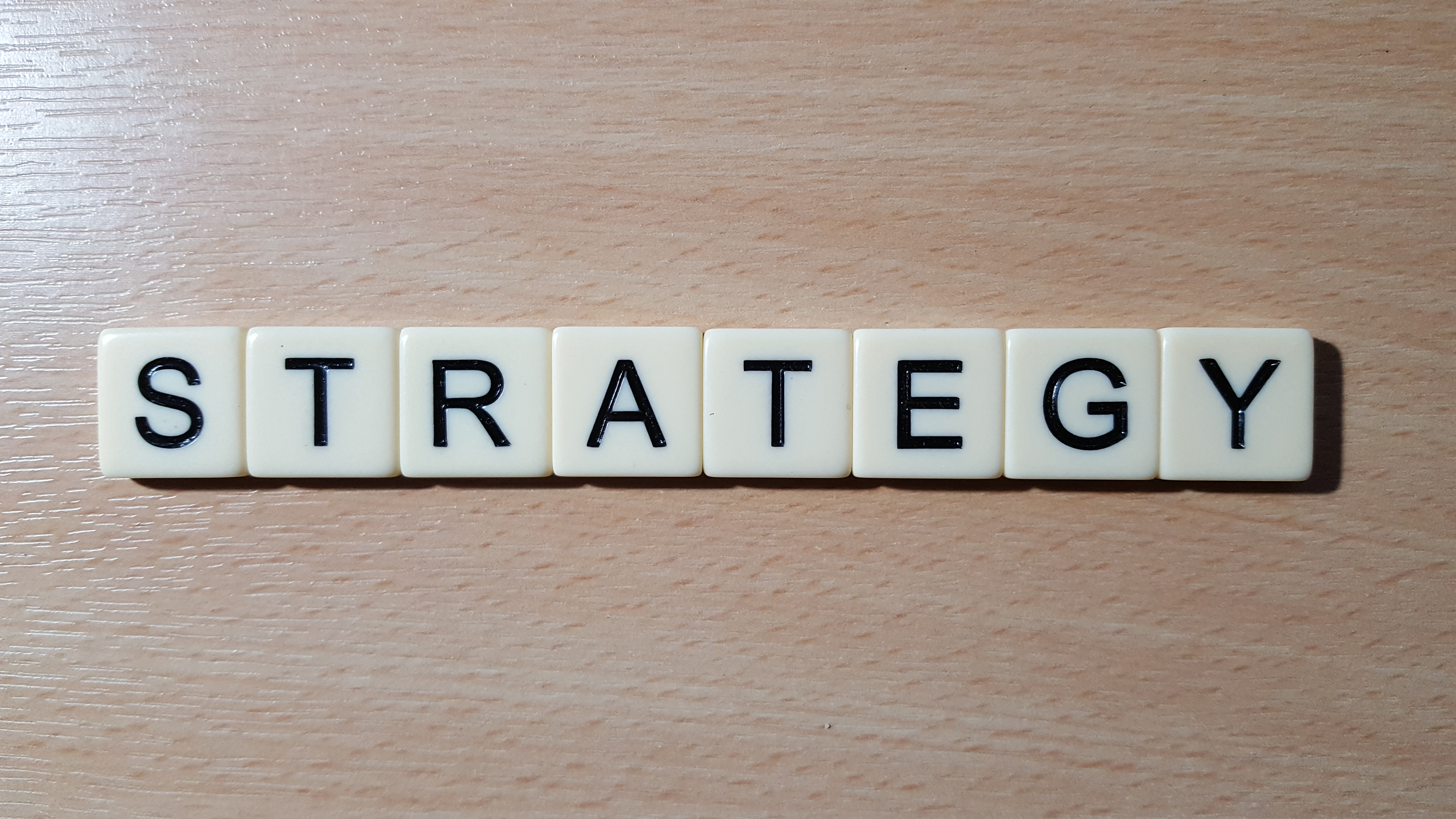Our blog articles about strategy, people, performance, decision making, balanced scorecards and culture change
Here is a way into my blog articles, over 300 of them: It is structured into major topics areas linking to the most articles in each topic area. These cover:

- The Strategy Zone
- Communicating & socialising Strategy: An Executive’s guide
- The Decision Improvement Zone:
- The Culture & Behavioural Change Zone
- The Performance Management Zone: A guide to understanding the management of performance
- Modern Balanced Scorecard Zone
- The 4G Strategic Management Zone
- How we look at our organisations and how we manage: The Paradigm Shift Zone
- Thought provoking articles about how we manage our organisations
Simply scroll down through the various topic areas and articles…
1) Strategy choice, approach and implementation articles: Most recent first
Strategy is not the same as important: Understanding the difference
"You can strategically add strategy to any strategic sentence to give it any strategic meaning you strategically want it to strategically have." Yes indeed folks, many people add strategy to their sentences to make them sound important. But strategy is not...
Being Strategic means working on the system, not in it
How do good strategists think and what does it mean to "be strategic"? Is there an art to being strategic and strategic thinking, or can it be learnt? it is clear to us that being strategic requires three core pieces. For many successful strategists, being...
What is Strategy: Strategy as a frame for decision making
A really useful way to test any strategy document or statement is to ask, does our strategy work as a frame for decision making? Does this strategy statement guide and inform decisions? To think of strategy as a frame for decision making might seem an unusual, but...
Strategy by hope and magic: and how to avoid it
I first used the phrase strategy by hope and magic when I was asked to review a 'strategic plan' for a client. There were lots of statements about improved performance and lower costs. However, when I searched for what would change and drive those changes... there...
The dangers of copy cat strategy
We occasionally see an approach to strategy which runs “They are doing this….. we need to do that as well”. The danger is that this sounds like copy cat strategy, and probably is. Copy cat strategy is dangerous and should be avoided. Doing the same thing is not...
What is a strategic objective: well, it is not a strategy
What is a strategic objective. Well, to start with a strategic objective is NOT a strategy. Having a strategic objective is not sufficient to make a strategy. I don’t care if you call it an objective, a strategic objective, a goal or even a vision. ...
2) Communicating & Socialising Strategy articles: Most recent first
Do you have employees, or people in your business
Whilst researching my next book, I was discussing with a Chief Executive how he communicated the culture his organisation. He explained that they published the revenue, margin and profit from every deal on the wall. Everyone knew what the overheads were so that they...
Communicating your strategy more effectively, Part 6: Communicate to different types of people
Communication of strategy is not just about talking. It's about people being different. Those people having different needs. Thinking in different ways and having different views of the world. You can hear it in their language, see it in their behaviour, and sense...
Communicating your strategy more effectively, Part 5: Communicating through your actions
So you have told the story of the strategy, but do you back it up with actions. Are you communicating your strategy through your actions? Examples of communicating your strategy through your actions 1) I want to encourage excellent customer service. I measure the time...
Communicating your strategy effectively, Part 4: Communicating the strategy journey
Communicating the “how?” Communicating the strategy journey. We know where we want to go, quite clearly and tangibly. We know why we want to go there. But how do we get there? How do we make the journey? How do we communicate we mean business with this strategy?...
Communicating your strategy effectively: Part 3 – Communicating the why of strategy
It is vital you communicate the why of your strategy, otherwise your people will not engage in your strategy or message. There are two Whys of strategy: The “Sense of purpose?”; and the “Why change?”. Communicate the why of strategy purpose The first “Why” is about...
Communicating your strategy effectively Part 2: Reasons for failure
Reasons for failure? I came across some frightening statistics once. They were: • 90% of all organisations fail to execute their strategy. That’s right. Despite all the brain power, consultancy fees and paper that goes into the development of the strategy and the...
3) Decision making and decision taking articles: Most recent first
Thinking fast and slow about strategy and decision making
I have been applying Daniel Kahnemans' work to thinking fast and slow about strategy and decision making in organisations. If you are involved with strategy in any way, I strongly recommend that you read book by the Nobel prize winning Psychologist, Daniel Kahneman....
Strategy, analysis and decision making, as a conversation.
The more I talk through the idea of "quality of conversation" with executives and managers i meet and work with, the more I have absolutely no doubt that the quality of analysis and decision making that goes on in an organisation is directly related to the quality of...
Decision Making and Decision Taking: they are different
Some time ago I was talking to a client about some decisions that they were dealing with and the problems they were having. The situation involved their strategy, who was involved in the discussions and who had decided what, already. I suggested that the heart of...
Rationale people: Econs, Workers and Human beings – encouraging behaviours.
There is a running joke between economists and psychologists: Economists, have a model of a rational decision maker. Psychologists are used to people being emotional and less rational and try to understand that irrationality. So Psychologists say that Economists...
Are you “just an employee” or “a person in the business”?
Recently I have been interviewing executives who have either created exceptionally high performing cultures, or who have achieved significant cultural change, especially around deeply embedded learnt behaviours. In one discussion the Managing Director was contrasting...
What we want is strategic agility and speed: What stops us and helps us?
Back in the dot.com boom around 2000 I was Chief Technology Officer of a start-up that changed direction 180 degrees in 6 months. Within the first six months we had speed: we had our solution up and running to demonstrate a net-market for trading materials between...
4) Performance management, various types and perspectives. Most recent articles first
Purpose and meaning at work, in business and in organisations
I was working with a client who, like many organisations, was getting tangled up in definitions of purpose and mission. What it revelaed was the importance of 'Meaning' at work, and meaningful work, today. This article untangles purpose and mission, but puts a...
Does culture precede strategy – I don’t think so
Someone suggested to me that culture precedes strategy. Should culture preceed strategy? I understand why think that, but I am not at all convinced. First however we need to dispel the myth that "Culture eats strategy for breakfast". Culture only eats strategy when...
Outcome thinking and balanced scorecards: Making them work well together
Outcome thinking and balanced scorecards look like two unrelated approaches to managing performance and results in organisations. However, they have very close connections. Learn how knowledgeable application allows these two, apparently different approaches, to work...
OFWAT Outcomes and Outcome thinking – be very careful!
[Update 2017: Since writing this article, we helped two UK Water companies with their OFWAT outcomes submissions. OFWAT have also improved their understanding of outcomes for PR19. However, this article is still relevant and we have provided some updates to it.] If...
OFWAT and outcome thinking – dangerous examples that will cause problems for the water industry
Oh dear! If you are in a water company doing any form of outcome work for OFWAT, you must beware (and read) the accompanying Outcome thinking White Paper on the principles that underly proper outcome thinking. I think it is great that OFWAT are planning to use Outcome...
What matters is how we think about performance management
This is about the moment, the Chief Executive realised that, what matters is how we think about performance management... The Chief Executive was no longer paying attention... As I talked to the management team, I noticed that the Chief Executive was no longer...
5) How to achieve Cultural and Behavioural change. Most recent articles first
You can’t sack people in the public sector – some alternatives
In another post I explained how many public sector organisations pull back from sacking people. "This is the public sector - we can't sack people!" Yet, the very people who you need to be moving on, can be the ones that are most difficult to remove. If we move to the...
You can’t sack people in the public sector. Really!
This is a phrase I keep coming across, "You can't sack people in the public sector". Here is the catch: When you want to bring about cultural and behavioural change there will be some people who cannot, or will not, change their behaviour. They retain the behaviours...
Insight 6: If you want proper leadership, draw your organisational chart upside down
Insight 6: If you want proper leadership, draw your organisational chart upside down This insight is part is a series of six insights into strategy, people and performance, derived from working with my clients in 2013. Creating the space for others to perform If you...
Insight 4: It’s about behaviours, (Stupid!) The Deeply Embedded Learnt Behaviours.
Insight 4: It’s about behaviours, (Stupid!) The Deeply Embedded Learnt Behaviours. This insight is part is a series of six insights into strategy, people and performance, derived from working with my clients in 2013. I recently interviewed twenty Chief Executives...
Purpose and meaning at work, in business and in organisations
I was working with a client who, like many organisations, was getting tangled up in definitions of purpose and mission. What it revelaed was the importance of 'Meaning' at work, and meaningful work, today. This article untangles purpose and mission, but puts a...
Does culture precede strategy – I don’t think so
Someone suggested to me that culture precedes strategy. Should culture preceed strategy? I understand why think that, but I am not at all convinced. First however we need to dispel the myth that "Culture eats strategy for breakfast". Culture only eats strategy when...
5) Modern Balanced Scorecards. Most recent articles first
Why do Balanced Scorecard projects fail? The bigger issue – tackling change
There are lots of stories about Balanced Scorecard projects failing. What is the real story behind these and why do they fail? In this article we look behind the headlines. There is a separate question: Who puts these stories about? When you look carefully, usually...
The Balanced Scorecard and Strategic Goals
This article is about how to use strategic goals in balanced scorecards. It was prompted by a Strategy Manager, asking on LinkedIn how use a 'strategic goal' in a Norton & Kaplan Balanced Scorecard framework. In this article I explain how you do start with a...
Do 70% of Balanced Scorecard projects fail? NO!
A recent posting on LinkedIn casually referred to the "statistic" that "70% of balanced scorecard projects fail". Only 10 minutes research pulled up the original source for this statistic and it is clear that the statement is not what was said by the original...
The customer perspective: talking in their voice
Perhaps the biggest, and most common, mistake I see in strategy map and balanced scorecard design, is failing to describe the objectives in the external customer perspective, from the perspective of those customers. This sounds obvious: after all it is called the...
Do 70% of balanced scorecard fail? No and more reasons why…
I saw someone peddling the idea that 70% of balanced scorecard projects fail. A statistic that is somewhat distorted from the original author's definition of 70% of performance measurement initiatives. There is an expression I fall back on in these when I hear...
How do I use Best Practice Balanced Scorecard templates (asking the wrong question!)
I often see people asking for Balanced Scorecard templates and offers of templates. These might be OK for measures but not for strategic balanced scorecards. I know why but it is not an approach to strategic alignment and execution. I only raise this because recently...
6) Fourth Generation Strategic Balanced Scorecards and modern methods of management. Most recent articles first
4G Balanced scorecards are about more flexible management systems
Kotter puts it very well, " Management is about making sure the system runs in the organisation; whereas leaders choose and design the management system that the organisation needs". In "Reinventing management", Julian Birkinshaw writes about alternative ways to...
The Strategic Balanced Scorecard is based on praxis, not dogma
On a LinkedIn forum I was being told that I did not know what was in a manual and therefore did not understand the Palladium Balanced Scorecard approach which gets called the Execution Premium. I am told I used 'incorrect' language. Also that there was only one way...
The Balanced Scorecard is not a technical tool: It is a social tool!
Most of what we see in "Balanced scorecards" are technical tools. Many of the questions we see and hear on balanced scorecard forums are technical questions. Many balanced scorecard projects are seen as, primarily, technical projects. This applies to of all...
The Psychology of Management: Taking the long view
I am quite interested in the psychology of management because I think we tend to adopt psychological models of how management works, and how change happens, without necessarily questioning their assumptions and continued validity, or applicability. I also find that...
Using templates for Strategy Development, Performance Management & Balanced Scorecards (NOT)
I often come across people asking for templates for their balanced scorecards. A recent example, worried me because went to the core of how strategy is developed and managed in an organisation. The question was being asked by someone with the role of "Strategy...
Reinventing how we manage for today’s management challenges
Reinventing how we manage from first principles. Given a continuing climate of austerity, uncertainty and international competition, most executives are under pressure to improve their organisations through costs, productivity or revenues. The focus for change has...
7) Paradigm shifts that affect our organisations and how we manage.
Most recent articles first
No Results Found
The page you requested could not be found. Try refining your search, or use the navigation above to locate the post.
7) Thought provokers, designed to make you consider thinking differently about how we manage and our organisations:
Most recent articles first
The case for humble strategy: and how we can achieve it
I want to make the case for humble strategy. There is a danger that we can own and become too attached to our strategy because we have researched it, created it and eulogised about it. However we need to be dispassionate about it and even humble. ...
Excitant Thought Provoker: Three thoughts on strategy (Newsletter 2018/05)
Three simple thoughts on strategy…. how does your strategy compate to these ideas? Strategy as a persistent pattern of behaviour. If someone says they do not have a strategy, I will ask, “So what has been the persistent pattern of behaviour of the organisation over...
Excitant Thought Provoker: To socialise your strategy you must share your mental model (Newsletter 2018/01)
Socialising strategy, instead of merely communicating it, is an idea my clients seem to love. But how to do that? Socialising strategy starts by creating a shared mental model of your strategy and its underlying thinking. That shared mental model goes on to underpin...
Excitant Thought Provoker: What is missing from our strategic thinking? (Newsletter 2018/01)
Something has been bothering me for a while and I wanted to explore the question with you… 1.1. The problem – the challenge…. When we think about strategy, the traditional pattern is: External world – what is happening? And where are we in...
Excitant Thought Provoker: What really drives organisational performance (Newsletter 2017/11)
Given the various conversations I have with clients about strategy and culture and performance, I thought you would find this interesting… In an interview with Jim Collins (Author of Good to Great and Built to Last), about his years of research into organisational...
A strategy document is different to a strategic plan
A strategy document serves a different purpose to a strategic plan. Confusion between these different documents causes good strategies to be described badly. The difference between strategy document and strategic plan At Excitant, we make a very clear...
Of course the best way to find out what we think is to Contact us







